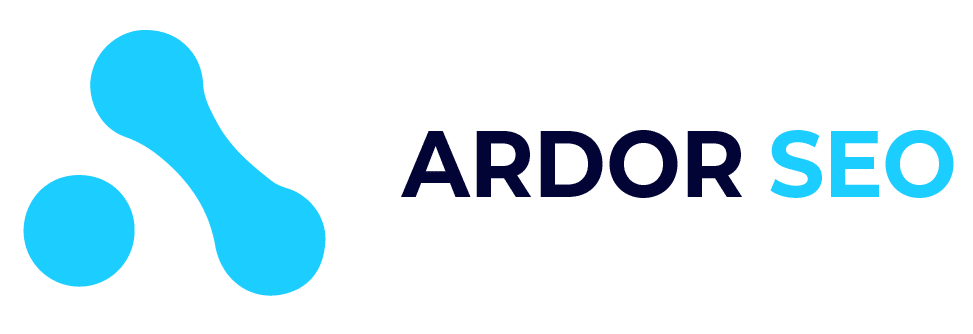Jeff Bradbury of TeacherCast Podcast Discusses Teaching and Understanding SEO with Kris Reid
Jeffrey Bradbury is the host of the TeacherCast Podcast, which is a programme that tackles a wide variety of topics that people are interested in. The podcast invites top educators and persons of interest who can provide listeners with useful information that they can learn from. This podcast began in 2011 and has since interviewed lots of influential educators and personalities that are authorities in their niche.

Introduction to SEO
One of the things people ask when they are building their own website is, “How do you get people to visit your website?” With all the sites that talk about the same topics and sell the same products as you, how can you rise above the rest and have people find you before they find your competition? This is done by search engine optimisation (SEO), and this is what Kris Reid, the Coolest Guy in SEO, and Jeff discuss in this podcast.
The podcast begins with Jeff talking about the importance of SEO and what will be discussed in the programme. If you’re looking to create an amazing blog or want people to find your site, this topic is for you. Jeff then begins to introduce his guest for this topic—an entrepreneur who built his own company from the ground up by learning how to do SEO.

Kris is an entrepreneur who is the founder and CEO of Ardor SEO, a link-building and content creation company based in Cambodia, but also has offices in the Philippines. Kris happened to begin his company out of necessity, having lost his job in the finance industry during the 2007-2008 Global Financial Crisis. Moving to Russia for a fresh start, he soon found that since he didn’t speak the language, he had to find a way to make a living. This is where SEO came in.
Fast forward to a few years later, and Kris now runs a successful business. SEO is his bread and butter, and he shares what he knows and gives great-meaning advice about SEO.
When asked to define SEO, Kris explains, “It’s a very broad term, it’s a really dynamic industry that changes all the time.” He then continues, “Basically, it’s trying to drive traffic to your website through search engines.” Jeff likens it to building a mousetrap, where you have to capture your target market by using SEO. It’s a matter of finding ways for your site’s content to reach your audience and your audience to find your content.
Grasping the Basics of SEO
Jeff asks Kris if SEO is something that people have to learn in a class or if it is simply something you have to learn on your own through research. Kris explains that SEO is pretty simple. All you need to do is to make Google see that you have good content, so that they can index it and make it available to the people. Kris further explains that Google uses spiders, which are what they call the Googlebots that crawl websites for information.

Bots or spiders are what help determine a site’s quality and relevance. These bots search the content on websites for relevance, trying to determine what keywords the sites are associated with and what keywords they should rank for. He continues to talk about how certain factors play a huge part in making a site rank better on search engines. He explains that being an authority in a specific niche is also important to a site’s rank.
One of the things Kris mentions is the way spiders crawl sites. They don’t check and index only the new pages; they also check older pages of the site to see if there have been any changes on them and if the new and old pages are covering the same niche. All of the crawling will help these bots determine if a site is relevant to audiences and will rank it for appearance on organic pages accordingly.
Jeff asks how a new site can become an authority that ranks really well on Google. Kris explains that while keywords have something to do with ranking, being ranked well actually goes beyond mere keyword usage. This has something to do with relevance, and Google’s PageRank algorithm helps with this. What this algorithm does is determining a site’s authority with the use of backlinks. If a lot of sites link back to your content, then you’re considered an authority, which makes you rank better.
Digging Deeper Into the Many Aspects of SEO
Jeff and Kris’s conversation shifts to what platform to use, whether Google analyses different platforms the same way, and other important aspects associated with SEO. Included in the discussion are talks about content management systems, doing more than just creating content, and more. Here are some of the questions and answers that were covered in their discussion:
Does Google search all website platforms equally?
This cannot be answered by a simple “yes” or “no”. It all comes down to how well a site is configured and formatted. Some platforms make it difficult to do this. So, it stands to reason that Google can’t properly crawl and index such sites as compared with ones that are properly configured.
When you create a site, structure is important. One way to create a site that has a good structure and is easy to index is to have content silos. This is ideal for larger websites with lots of content, since the silos make it easy for Google and users to find what they need.
Is it important to have your site organised before you start building it?
It’s difficult to get where you want to go without a plan. If you build a site without any structure from the start, you will find it more difficult to get it to rank. If you can spend some time planning the structure of your site and organising it before you begin building, then that would be the best approach from an SEO standpoint.
At the planning stage, discussing keywords, categories, navigation, and all the other important aspects of a site should be hashed out. Site design, layouts, and other similar concerns should also be discussed before anything is put on any website creation platform. This will make it easier to do and help you focus on user experience at the same time.
How do you educate new website owners on what content management system and website development platform to use?
You can let website owners create sites using what they want, but the best platforms to use are those that are easy to use and format, like WordPress. These platforms allow you to create websites that are optimised, great to look at, and easy to manage. It is highly recommended that you invest in your site if you are serious about your business and want it to do well online.
Can you create a great looking optimized website on a shoestring budget?
Not everyone has a huge budget allocated for the creation of optimised and highly effective sites. If you’re a website owner, it’s a good idea to learn how to manage your own site so you don’t have to worry about its budget. There are tools for you to use in order to properly monitor your site’s performance, like Google Analytics and Webmaster Tools. Knowing how to use these tools will help you keep track of your site’s performance and help you tweak it for optimal results without having to pay an expert to do it.
How does Google penalise sites and what are the reasons for this?
Google penalises sites that are not up to their standards. This can include duplicate content, thin content, spammy links, and other sub-standard elements that are found on a site. The penalty for this is usually the de-indexing of your pages. De-indexing is when Google bots won’t crawl your pages and won’t include them in the results of their search results pages for your chosen keywords. When this happens, you will need to clean up your site in order for Google to index your pages again. Once the site is cleaned of the problems that caused it to be de-indexed, you need to submit a request to Google for it to be crawled again.
Does Google reward your site for commenting on similar sites and having links back to your site, or is this something you shouldn’t do?
There is actually no value in the links that are posted on the comments found on articles and pages that are found on authority sites. This is because these links are called “no follow” links. This means that these links don’t pass on authority “juice” to the sites they are linking to. The links that are found within the content of these sites, however, are “do follow” links, so these do give authority juice to the sites they redirect readers to.
The reason why links in the comments of authority sites are “no follow” is because Google doesn’t want people to abuse the comment section of these sites. It also discourages spam linking for the purpose of obtaining link juice.
Learning Is Constant When It Comes to SEO
As the podcast progresses, you will learn that SEO is an ever-evolving craft that requires you to stay informed. This will help you stay on top of your game and help your sites do well. You also need to learn how to use the tools that can help you with optimisation. Some of the things that you need to keep in mind when you have a site and want it to do well include:
There are a lot of things for you to learn and remember when it comes to this craft, which is why you need to keep yourself constantly informed. You can try to learn the basics with the help of a mentor or an SEO course somewhere, but the rest is up to you. It’s all about keeping yourself abreast with updates, trends, and changes in the SEO landscape.
According to Kris, this is just the tip of the iceberg when it comes to learning SEO. There are loads more to learn and all you have to do is to start somewhere.
To listen to the entire podcast, check out the TeacherCast Podcast.

